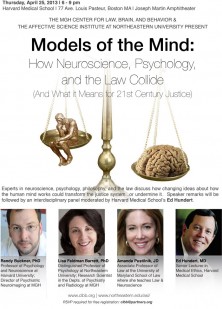As of fall 2014, CLBB Director of Law & Ethics Rebecca W. Brendel, JD, MD, will join the Harvard Medical School Center for Bioethics to lead the development of a new Master’s Program in Bioethics. Originally established as the Division of Medical Ethics, The Center was rebranded in spring 2014 to serve as a convener for faculty who will collaborate with the ethics services at the HMS affiliates and with ethics programs at schools throughout Harvard University. Dr. Brendel will develop and then lead the new Master’s Program in Bioethics at HMS.
The Master of Bioethics Degree, beginning fall 2015, will combine resources from the Center for Bioethics, Harvard teaching hospitals, and departments across the University in a one-year full time course of study and is open to working professionals holding a terminal degree in any discipline. A core group of applicants is expected from medicine, law, nursing, public health, social work, public policy, scientific and biotechnology research, journalism, and business.

Dr. Brendel is Assistant Professor of Psychiatry at Harvard Medical School and Director of Law & Ethics at CLBB. An expert consult-liaison psychiatrist and ethicist, Dr. Brendel has published widely on issues including voluntary psychiatric hospitalization (2014), evaluation of capacity to appoint a healthcare proxy (2013), and legal issues including mandatory reporting and informed consent (2010).
Dr. Brendel will be stepping down as Clinical Director of the Home Base Program — a collaboration of the Red Sox Foundation and MGH — in order to step into the new role at the Center for Bioethics. Continue reading »




